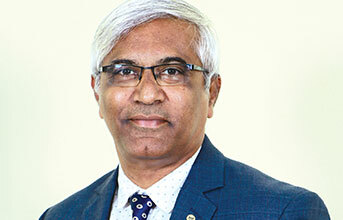
What, according to you, are the key challenges the Indian machine tool industry is facing today?
The machine tool industry faces persistent challenges affecting its business success. Many SMEs and MSMEs struggle with limited funds for R&D and manufacturing high-quality products at competitive prices. Collateral-free debts such as the Startup India Seed Fund Scheme and the SIDBI Fund of Funds will help these industries and aspiring entrepreneurs gain access to low-cost capital and overcome cash flow issues. India needs to lower its dependence on foreign suppliers for machine tool components and subsystems through a mix of policy initiatives that tap into the design and manufacturing capabilities of companies. Government support for funding R&D initiatives is needed to overcome the technology gap in curbing the import of hi-tech machines.
Additionally, addressing the attractiveness of salaries is essential to attract top engineering talent to the machine tool and manufacturing sectors. Also, global machine tool manufacturers are establishing facilities in India, giving more competition to domestic manufacturers.
How does IMTMA envision the Indian machine tool industry enhancing its export market potential and finding new avenues? What key factors need to be kept in mind?
IMTMA has set up an export core group to understand challenges faced by companies in their quest to find new avenues and enhance exports. Indian machine tool industry needs to ensure its continued presence in foreign locations. IMTMA envisions creating Brand India centres in global locations to assist machine tool builders in operating cost-effectively in foreign locations. Also, to match global standards, we need to manufacture products that can match the ones produced by global competitors. IMTMA is working on creating shared facilities, assisting the industry in R&D initiatives, and promoting globally competitive products for both domestic and international markets. Startups can play a role in creating innovative products.
What role does IMTMA play in advocating for policies that support the growth of the machine tool industry in India?
IMTMA works closely with all the major institutions in India, such as the Ministry of Heavy Industries, the Ministry of Commerce & Industry, the Department for Promotion of Industry and Internal Trade, other Government of India agencies, the Government of Karnataka, the Confederation of Indian Industry, and other industry associations on various matters concerning the machine tool industry. Several meetings have been held to discuss demand creation, anti-dumping aspects, tax and finance matters, digital enhancements, public procurement, and various other challenges facing the industry from time to time. Further, IMTMA actively contributes suggestions for the Union Budget, incorporating its member companies' views. It also shares data on production, consumption, and machine tool growth figures, which are compiled quarterly with the concerned ministries.
How is IMTMA fostering innovation and research within the manufacturing sector?
IMTEX and IMTEX FORMING, organised by IMTMA, provide a unique opportunity for the manufacturing industry to witness live technologies and solutions. Individual companies developing new products also get the opportunity to showcase their innovation and research at the exhibition.
IMTMA works with the Advanced Manufacturing Technology Development Centre (AMTDC), a centre of excellence on machine tools and production technology at IIT-Madras in Chennai, on developing next-generation products that align with the vision of an AatmaNirbhar Bharat. Technology development projects, including the development of indigenous industrial robots, are ongoing at AMTDC.
The association is also working closely with the Advanced Machine Tool Testing Facility (AMTTF) in Bengaluru to provide testing, problem-solving, and calibration services, as well as performance qualification of machines as per standards for machine tools and other engineering industries pan-India.
What key steps is IMTMA undertaking to bridge the skill gap in the machine tool sector? Are there specific programs or partnerships aimed at nurturing talent and expertise within the industry?
IMTMA has empaneled eminent faculty for imparting knowledge on courses related to machine tools and manufacturing. It offers a certified training program in metrology, and ASME training program on GD&T and other training certification courses.
The association is setting up a technology centre in Gurugram and offering hands-on training courses in Pune on data analytics, additive manufacturing, digital manufacturing, data analytics, robotics, artificial intelligence, Industry 4.0, etc. to meet the aspirations of the demographic reach of training programs.
IMTMA is working with premier institutions in Pune to offer one-year post-graduate diploma and two years of post-graduate courses, apart from the regular e-learning, offline, and online training courses.



























